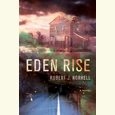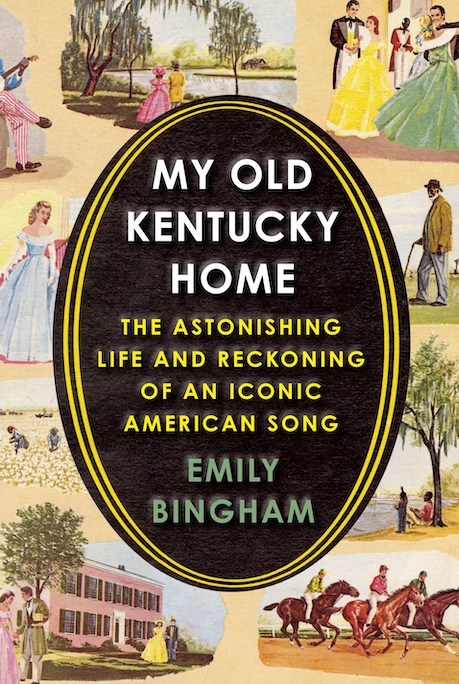A Committed Conservative
Nancy French’s memoir recounts her journey of faith, love, and politics
Breakups are hard — and sometimes dangerous. Ghosted: An American Story is writer and activist Nancy French’s account of her split with the Republican Party following its embrace of Donald Trump and the harassment she and her family subsequently experienced. In this memoir from Christian publisher Zondervan Books, French seems eager to convince her target audience of evangelical conservatives that, despite her opposition to Trump, she is and always has been one of them.

The title alludes to French’s work as a ghost writer for prominent Republicans and her sense of betrayal when support for Trump led the party away from its core values. Though he appears in Ghosted’s introduction, the former president isn’t mentioned again until midway through the book. Instead, French opens the narrative with her upbringing in an intensely religious family in rural Kentucky and later in Paris, Tennessee. Her parents’ roots were in Monteagle, where young Nancy developed a strong spiritual connection to her female relatives. At age 12, she lost her faith and her innocence when she was sexually abused by her youth pastor. This horrific event is the first in a pattern of abuse and betrayal that French traces to the brand of evangelical Christian theology that portrays women as sexually dangerous and male leaders as divinely anointed and untouchable.
After years of depression and self-harm, she encounters her future husband, David French (now a New York Times columnist), at age 18 when he calls to recruit her for his alma mater, Lipscomb University, a Christian college in Nashville. They begin a relationship, and with his prayerful support, she receives the Holy Spirit:
I heard a noise, and the darkness which had clung to me took flight. It sounded like wings beating furiously, either in triumph or in frantic escape. But there was a sensation accompanying the sound, as if a knife pried a calcified carapace from me, leaving me vulnerable, tender, and exposed. After the wings stopped beating, I was lighter, hopeful, and joyful. I’d changed.
A committed conservative, French supports her husband’s decision to enlist in the Army and serve in Iraq. She ghost-writes memoirs for Ann Romney and Bristol Palin and becomes a sought-after writer of speeches and articles for leading Republicans. However, she assures her readers that she is not one of the elite. She recounts being mocked for her Southern accent and identifying with a harried diner waitress, thanks to her own previous employment at Huddle House. And she makes it clear that she’s first and foremost a mother and homemaker, working “from [her] home in rural Tennessee, sandwiched between school pickup and grocery runs.”
 French’s experience as Bristol Palin’s ghost writer for the memoir Not Afraid of Life (2011) cements her view at the time of the Republican Party’s moral superiority. She’s disgusted with liberals who mock Palin’s account of her son’s conception, which bears the earmarks of date rape. Citing the left’s support for Ted Kennedy and Bill Clinton, French concludes that Democrats “protected abusers of women, and Republicans alone would stand against sexual injustice.”
French’s experience as Bristol Palin’s ghost writer for the memoir Not Afraid of Life (2011) cements her view at the time of the Republican Party’s moral superiority. She’s disgusted with liberals who mock Palin’s account of her son’s conception, which bears the earmarks of date rape. Citing the left’s support for Ted Kennedy and Bill Clinton, French concludes that Democrats “protected abusers of women, and Republicans alone would stand against sexual injustice.”
Enter Donald Trump. For each conservative credential French presents, she provides a diametrical opposite in Trump’s behavior, but she also asserts, “He was merely a canary in a coal mine, an early indicator of the danger that was already all around us.” As Never-Trumpers, she and David become the target of threats, obscene faked videos, and racist insults regarding their adopted Ethiopian daughter. She loses her remaining clients when she publishes a Washington Post column titled “What It’s Like to Experience the 2016 Election as Both a Conservative and a Sex Abuse Survivor.” Later, she urges Republicans to take seriously the abuse allegations against Alabama justice Roy Moore and Supreme Court nominee Brett Kavanaugh. When conservative writers castigate her for exploiting “personal experiences” to “score political points” and condemn her as a “seducer of preachers,” she finally decides to leave the party that has already left her.
French bravely shares her trauma, but she is curiously silent on other topics. Her account of living with the Palins while writing Bristol’s memoir provides no detailed impressions of either Sarah Palin or Steve Bannon, who was also staying with the Palins during that time. At the end, French references her occasional wrestling with her faith, a struggle that doesn’t appear on the page after her salvation experience.
Ghosted: An American Story ends on a triumphant note, with French investigating child sexual abuse at the Christian Camp Kanakuk and tracking down and exposing the youth pastor who abused her. However, the dominant tone of the memoir is that of an altar call, an exhortation to redeem the soul of conservatism. It remains to be seen whether her erstwhile allies will heed the call or she’ll continue to be a voice crying in the wilderness.

Whitney Bryant is a writer, teacher, and editor. Her work has appeared in The Georgia Review and One Story. A graduate of Vermont College of Fine Arts, she lives in Nashville.


